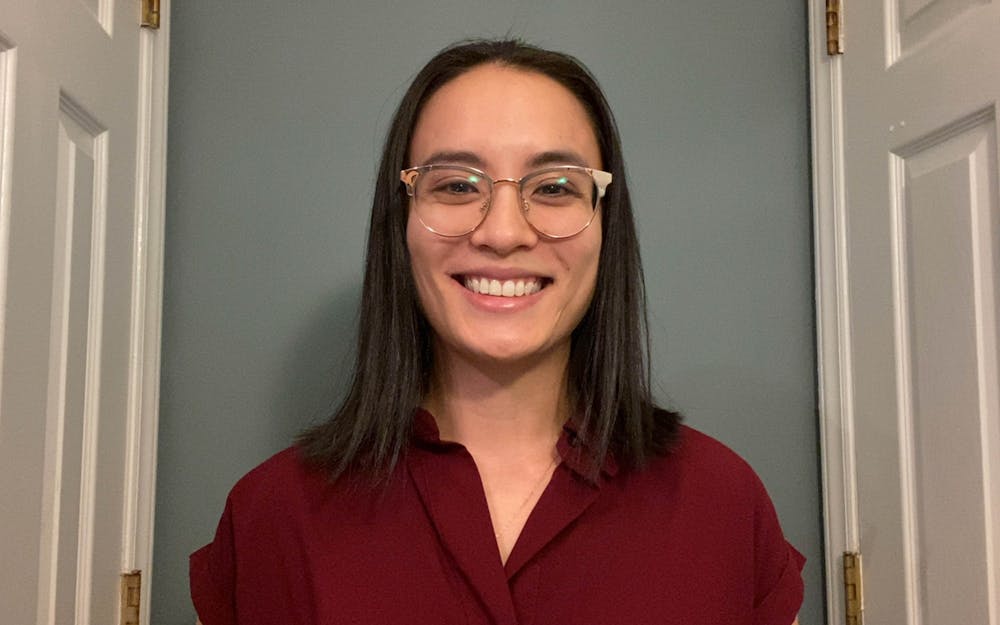Seeking support
When sophomore Victoria Song first came to UNC, she said she wasn't expecting to be involved with her Asian identity because she hadn't been during high school.
But during her first year, she started taking one of UNC's "heritage track" Chinese classes. The class had about 20 students, who all identified as Asian American.
"It made the classroom experience so safe and, honestly, magical," Song said.
She also joined UNC's Chinese Undergraduate Students Association and attended celebrations for Chinese New Year and Mid-Autumn Festival. All of those things, Song said, opened a door to learn more about her identity as an Asian American woman.
Song said since being at UNC, she's realized how much Asian American history she hasn't been able to learn through school.
“There’s so much pain and so much suffering, but there’s also so much triumph that I don’t know about," Song said. "It shouldn't just be on us. It should be on the institution we pay money to to also teach.”
Following the Atlanta shootings, she reflected on this identity in a way she hadn't before. Song called her Asian American friends to talk through what she was feeling, looking to speak with people who she could relate to — before realizing she might need to take a different approach.
“I don’t want to, quite frankly, burden my friends," she said. "It’s not their job to have the right thing to say."
But when she went to the CAPS website looking for an AAPI staff member to speak with, she couldn't find anyone. This experience led her to sign the petition for AAPI-identifying counselors at CAPS.
Gaining signatures
AAPI community members have the lowest help-seeking rate of any racial or ethnic group, according to the National Alliance on Mental Illness. Studies over the past 20 years have shown the importance of cultural competence in mental health services — something the petition aims to address.
To get the day's news and headlines in your inbox each morning, sign up for our email newsletters.
As of Saturday, the petition had garnered over 1,100 signatures, which could be publicly or privately displayed. The petition's creators put out a graphic on social media about the petition, which was shared widely by UNC students.
“It shows how desperate of a need this is,” Parker said. “I think it’s something that hasn’t been part of the conversation and it absolutely needs to be.”
Parker and her classmates submitted the petition to Chancellor Kevin Guskiewicz and CAPS Director Dr. Allen O’Barr on March 30. According to UNC's Media Relations, Guskiewicz will respond to the petitioners directly.
Guskiewicz has previously spoken about the efforts of UNC’s Asian American Center, under the leadership of associate professor Heidi Kim, to support students. The day after the Atlanta shootings, March 17, the AAC partnered with North Carolina Asian Americans Together to co-host a virtual vigil.
“I expressed to Heidi on Wednesday after that vigil that as the father of an Asian American daughter, I am learning from her and others at the Center about how to be a more informed and better campus leader, but also about how to be a better parent to my daughter,” Guskiewicz said during a March 19 Faculty Council meeting.
CAPS currently has mental health resources for students of color such as the Multicultural Health Program, which offers counseling and group therapy services, particularly for Black, indigenous and students of color at UNC.
"Diversifying our support services remains a top priority for all of us at CAPS," O'Barr said in a statement. "We appreciate students bringing their concerns to us and we are committed to working with our campus community to build a welcoming and inclusive CAPS environment."
'I would've been able to thrive more as a human being'
For Ikoma, her work with the petition has brought back memories of her undergraduate years at UNC from 2009 to 2014.
She came to UNC as a student who’d made good grades and was committed to performing well academically. But, Ikoma realized, she never broke free of the model minority myth during her undergraduate years.
The model minority myth stereotypes Asian Americans as successful, ignoring the diversity and challenges of the community.
While she was an undergraduate at UNC, Ikoma said she wishes she'd had mentors with a similar background to her — mentors who could better understand her experiences.
“I think I would’ve been able to thrive more as a human being,” she said.
A lack of support from the University isn’t just an issue in the aftermath of recent tragedies like the Atlanta shootings. That support, Ikoma said, has been missing for years.
“I didn’t feel like I had the support to explore my racial identity and explore who I was as it related to so many of these experiences that are unique to being Asian American,” she said.
Ikoma hopes that the work she and her colleagues are doing now will create a lasting impact for future generations of AAPI students at UNC.
“One of the ways to change the story of the people behind me is to share my own,” she said.
@praveenavsoma
university@dailytarheel.com



